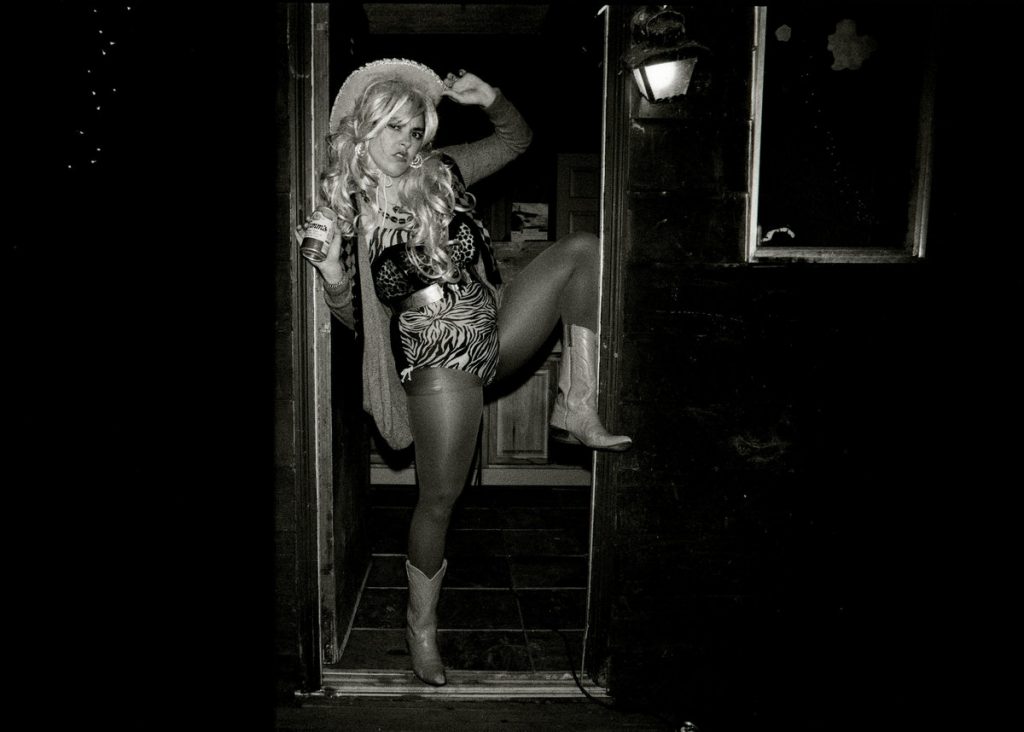
The record arrives, credited to no one. It’s entitled “The Blue Dirt of Paradise.”
The cover, a stark black and white photo, was taken at night. A woman in ripped nylons with blonde curls spilling from a cheap straw cowboy hat wears a tight fitting, wildly patterned bodysuit. With a can of Hamm’s beer in her hand and a scowl on her face she stands legs akimbo, spread across an open doorway. At once beckoning and forbidding, she’s an invitation and a warning.
I drop the needle into the grooves and it crackles to life, the buzz of an amplifier, unscrubbed, signifies the tactile–even if we don’t know by whose, what follows was surely made by human hands.
“The Blue Dirt of Paradise” opens with a tale of heartbreak and perseverance. The sound, structure and subject are classic country, adorned as much of the record is: with plinking bar room pianos, twangy Telecaster licks, shimmering pedal steel and lilting fiddles.
Every component of the record is adroitly but understatedly performed. While never rushed, the pace occasionally quickens into heel-clicking honky tonk and chugging boogie-woogie, though an aching ballad is never far.
Although the singer–he of the plaintive baritone and wistful poetry–remains anonymous, we do glimpse at the contours of his trials. He may be in paradise, as the record’s title suggests.
But this may also be purgatory.
Either way, “The Blue Dirt of Paradise” is picturesque. The vinyl record takes you there.
It’s a world where everything’s dusty, where the ashtrays are full and the bottles are empty. A place of wide-open skies and a glaring sun affords no shade ’til it sets. It’s a place where beauty is found but often in the last place you look. Where toil is common and clarity comes with a hangover. Where respite is a truck stop but the road never ends. It’s a place where companionship is plentiful but nothing–especially love–comes without a price.
The nameless narrator surveys and recounts this world–could it be Texas? Mexico? a dream?–in vivid detail and reflects with longing, desire, respect and resignation.
“You shoulda known better,” he sings, “but you knew enough to know you had to dive in.”
With such insight, “The Blue Dirt of Paradise” belongs in the canon of Existential Country, alongside tunes like Jimmy Webb’s “Wichita Lineman,” and Kris Kristofferson’s “Sunday Morning Coming Down.” (Made famous by Glen Campbell and Johnny Cash, respectively.)
As for the identity of the artist behind “The Blue Dirt of Paradise”–who took the unprecedented step of convening a record release party where other artists performed without him–well, maybe it doesn’t matter. Maybe the mystery is freeing, a way for listeners to sink further into the record’s sense of place.
As another existential country tune, by Iris DeMent goes: “Let The Mystery Be.”
Leave a Reply